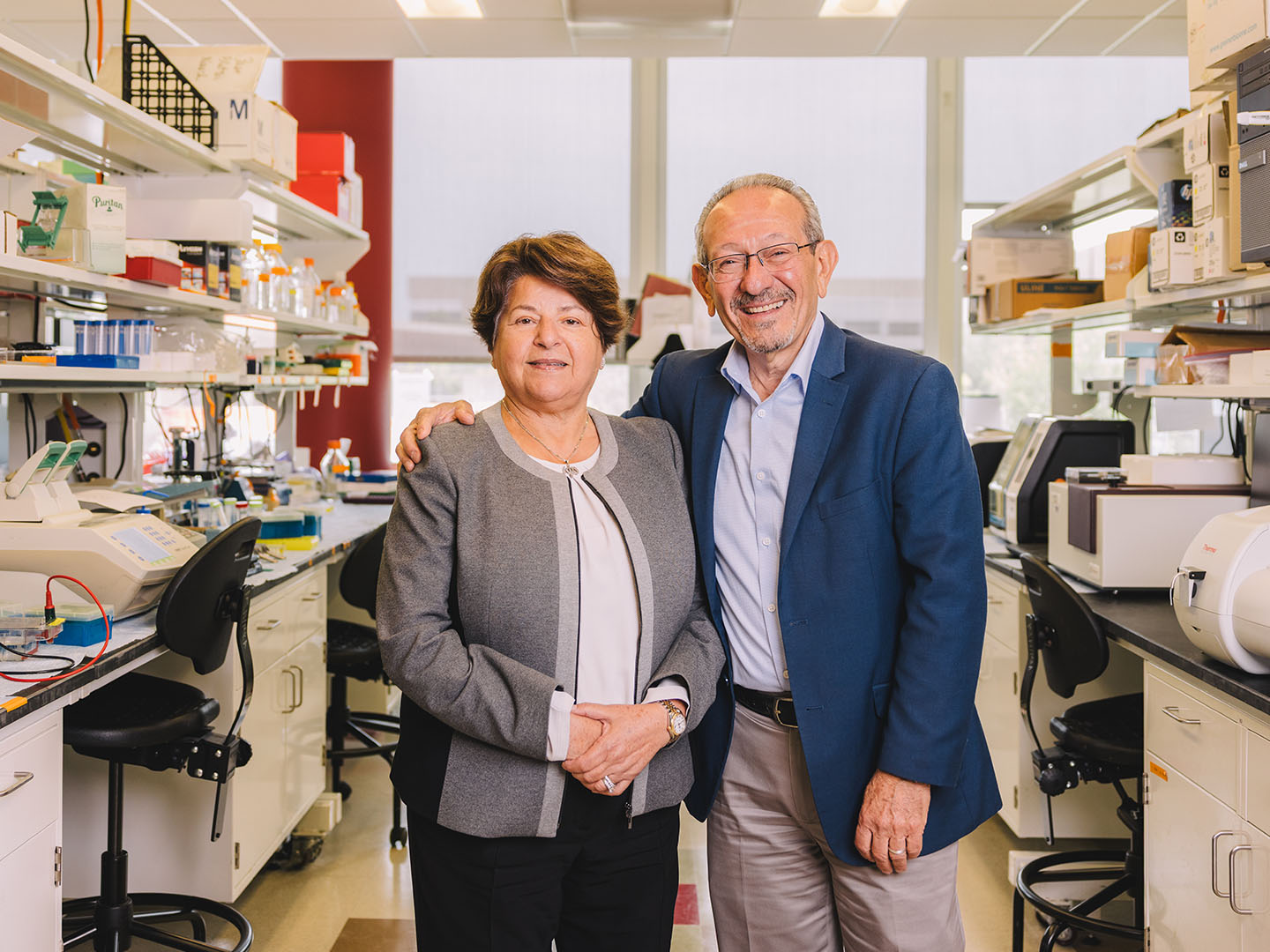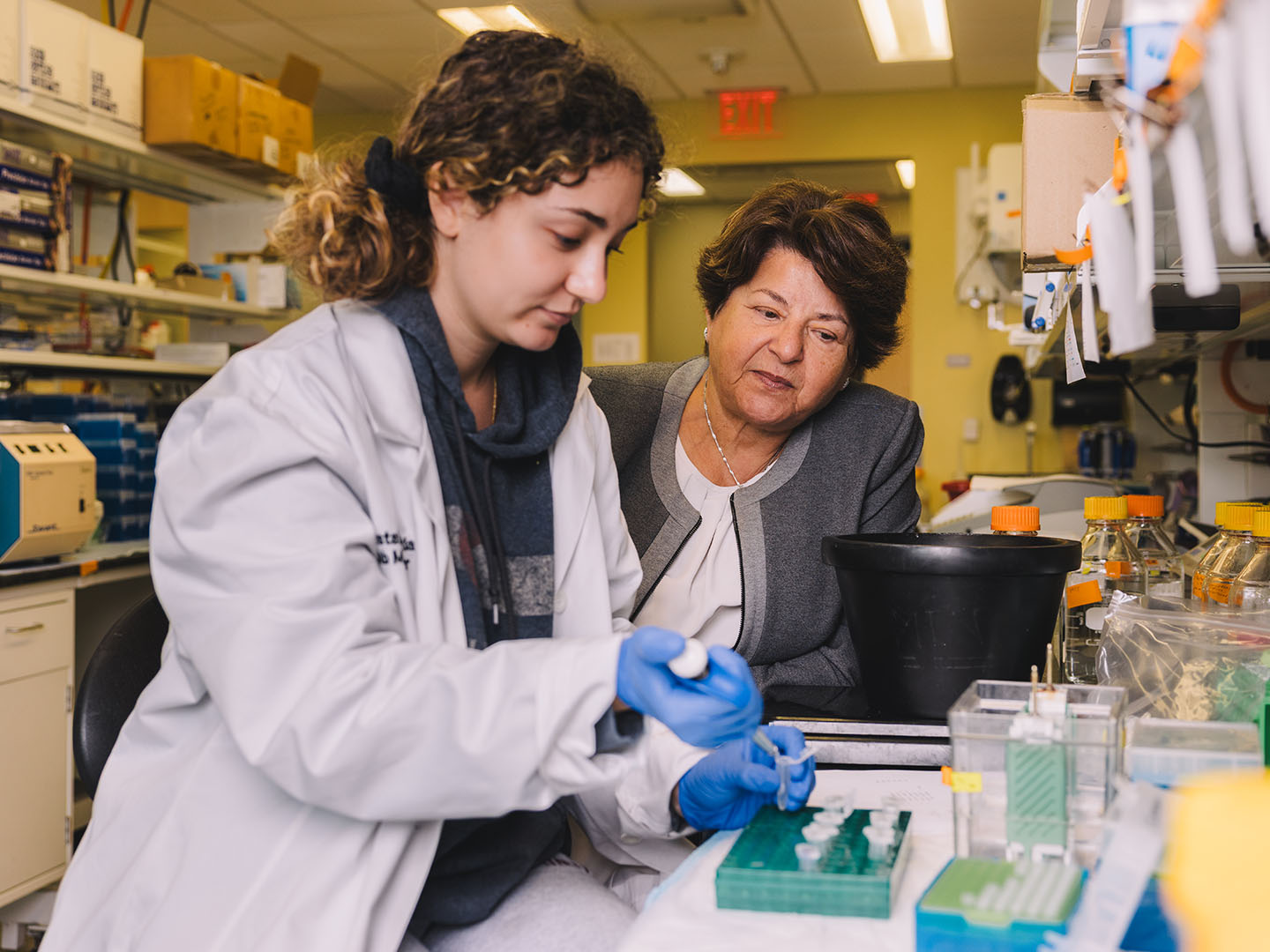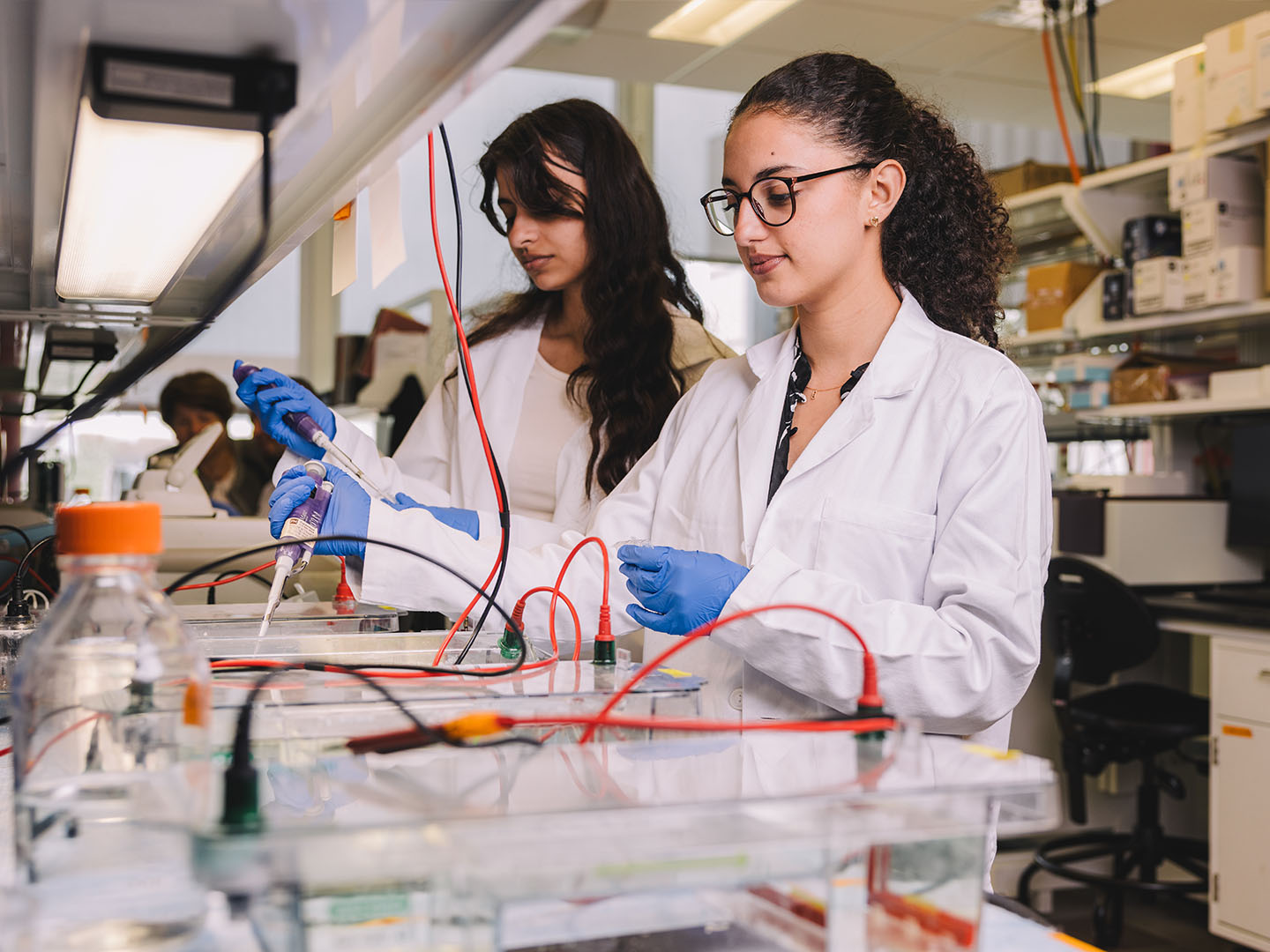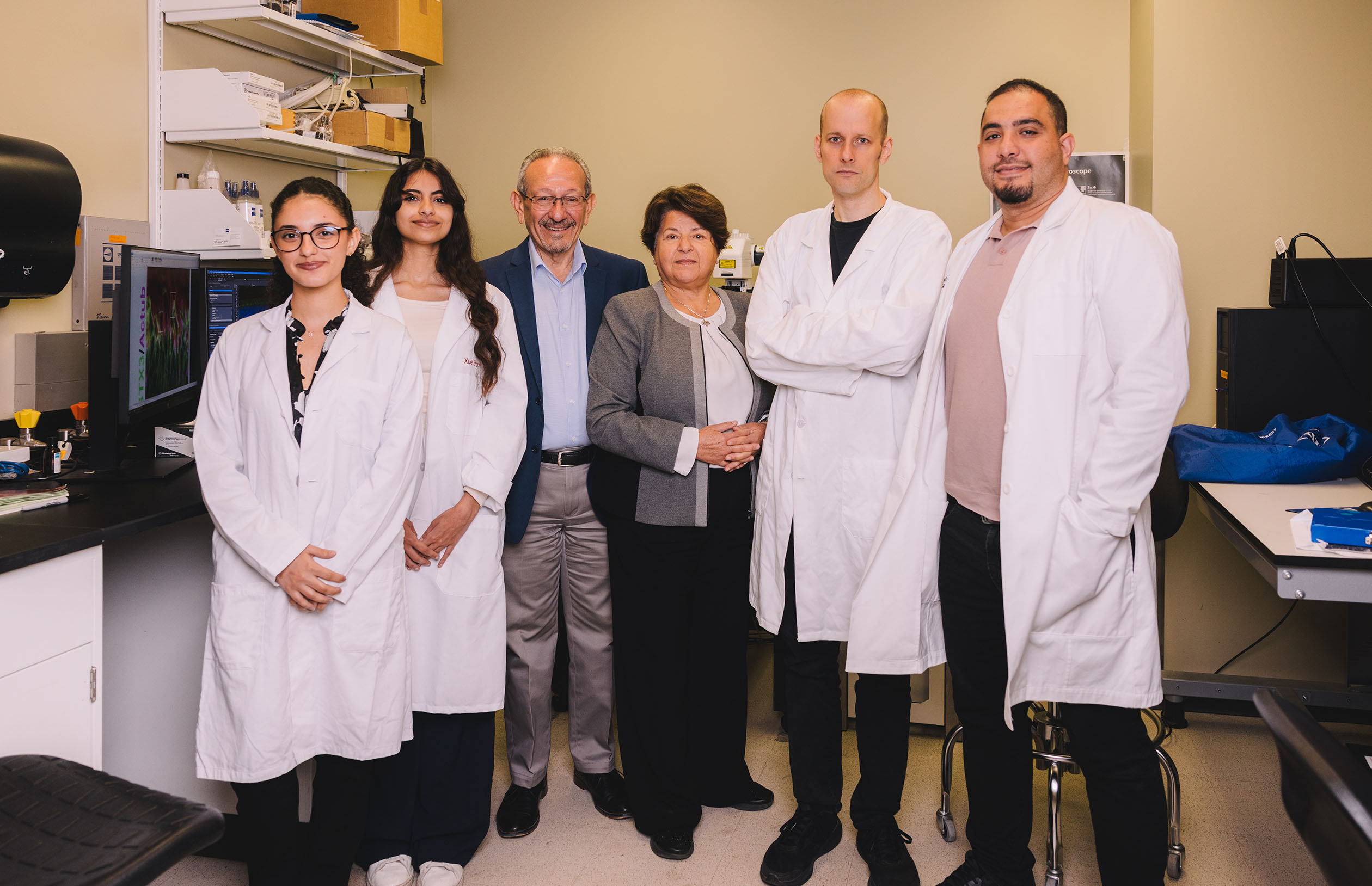Key Takeaways
- UH receives $1.1 million gift from the Cynthia and George Mitchell Foundation for potentially life-changing research on Usher Syndrome, a rare genetic disorder affecting children.
- The gift builds upon a previous award from the National Eye Institute and will help advance innovative gene therapy approaches for the condition.
- Support from the GCMF is the kind of visionary investment that will elevate world-class research, deliver real-world solutions in health and medicine, and accelerate innovation that improves lives.
The University of Houston has received a generous $1.1 million gift from the Cynthia and George Mitchell Foundation to advance potentially life-changing research on Usher Syndrome, a rare genetic disorder that affects children and can lead to both deafness and blindness.
The two-year gift will support the research of biomedical engineering professors Muna Naash, Ph.D., and Muayyad Al-Ubaidi, Ph.D., in the Laboratory for Retinal Molecular and Cellular Biology and Gene Therapy at the University of Houston’s Cullen College of Engineering. This grant builds upon a previous $1.6 million award from the National Eye Institute in 2023, creating a robust research platform to advance innovative gene therapy approaches for this challenging condition.
“The Cynthia and George Mitchell Foundation’s transformative gift will help accelerate treatments that improve vision and hearing for thousands. Thanks to the foundation’s generosity, we can advance life-changing research, turning hypothesis into promise. On behalf of the University of Houston, I thank them for their remarkable support and congratulate our researchers on their discoveries.”
-UH President Renu Khator

Usher Syndrome affects as many as 25,000 people in the U.S. and is the most common genetic condition worldwide that impacts both hearing and vision in children. It is inherited from parents who each carry the faulty gene but do not show symptoms themselves. The disorder is classified into three main types, and currently, there is no cure for any of them.
Naash and Al-Ubaidi have spent years studying Usher Syndrome Type 2A. Their research on mutations in the USH2A gene, which is crucial to the development and maintenance of the inner ear and retina, has been published in Nature Communications.
“Our work began more than two decades ago when I met a young boy who had lost his both his vision and hearing, and it made me realize just how precious those two senses are, and it truly touched my heart,” Naash said. “Thanks to the generosity of the Cynthia and George Mitchell Foundation, we can now take the next critical steps in our research and bring hope to families affected by this challenging condition.”
The Cynthia and George Mitchell Foundation’s support reflects its commitment to advancing medical research, in this case addressing a rare disease affecting children and families.
“We are honored to support Dr. Naash and Dr. Al-Ubaidi's groundbreaking work on Usher Syndrome," said Katherine Lorenz, CGMF’s president. "By supporting this research, we hope to accelerate progress for all families affected by this devastating disease. Every scientific breakthrough brings us closer to meaningful treatments.”
When Naash and Al-Ubaidi joined UH in 2015, they saw it as an opportunity not only to contribute their expertise, but also to help strengthen and elevate the University’s status as a Tier One research institution.
“What makes UH such a powerful hub for research is not just its own resources, but also its location and strategic partnerships, including those with the Texas Medical Center,” Al-Ubaidi said. “We have access to an extraordinary network, and that kind of collaborative environment is essential when tackling complex diseases like Usher syndrome, where no single lab can do it alone.”
As UH approaches its centennial, this gift from the Cynthia and George Mitchell Foundation represents the kind of visionary investment that will propel the next 100 years of impact. It directly supports the goals of the Centennial Campaign to elevate world-class research, deliver real-world solutions in critical areas like health and medicine, and accelerate innovation that improves lives.


